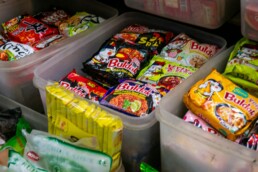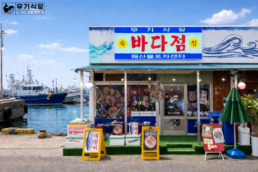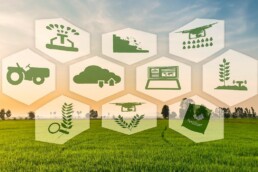Korea is a country that is committed to growing a sustainable environment. Former president Lee Myung Bak was the first to address the nation’s environmental development. “If we make up our minds before others and take action, we will be able to lead green growth and take the initiative in creating a new civilization,” Lee claimed in one of his speeches. Since then, the government has been creating plans for a greener country. Therefore, Seoul City founded the Sustainable Development Commission to support actions towards a more sustainable environment and a healthier society. President-elect Yoon Suk-yeol campaigned to strengthen Korea’s current renewable energy target for 2030. However, he also stated he does not believe South Korea can reach net-zero carbon emissions by 2050. Will Korean startups continue to focus on sustainability like before?
More and more Korean tech entrepreneurs are coming up with concepts focused on sustainability. Korean Millennials are mainly focused on minimalism, zero waste, and other initiatives that will bring about sustainability in the tech ecosystem in Korea. Therefore, it is refreshing to see the number of ambitious game-changers taking the eco-friendly and green way of doing business seriously. While the Korean government is taking steps to set ambitious emission reduction targets for 2030, it is the continent of Korean sustainability startups that are truly bringing the innovation we need to tackle climate change before it is too late.
Korean Sustainability Startups to Know
Montsenu – saving the Earth from plastic waste

Montsenu is a lifestyle brand that turns wasted PET bottles into valuable products. Humans produce over 200 million tons of plastic waste every year. Every piece of plastic ever made still exists today. This causes negative impacts on oceans and animals as more and more plastic waste floats around in the world’s oceans. Therefore, Montsenu’s mission is to protect the environment. The company uses PET bottles and plastic waste to reduce plastic waste by creating clothes and fashion items. Currently, Montsenu recycled around 976kg of 500ml of wasted plastic bottles. The process involves breaking the PET bottles into small flakes and then melting them into small pellets. Then it is melted again filtered and spun into threads.
Asia’s Representative for a sustainable lifestyle
The Korean startup aims to be Asia’s representative for a sustainable lifestyle. The collections on Montsenu are defined by Julian Junbum Park’s signature Timeless design and attention to detail. Julian is the founder and Creative Director at Montensu. The collection covers men’s and women’s ready-to-wear, footwear and accessories, and denim.
With more and more consumers willing to pay more to buy sustainable products, more fashion designers like Junbum Park are coming forward to support the environment. The future of fashion is heading towards being more green and sustainable.
Green Labs

Green Labs is an Agtech startup that aims to take the value chain from crop production to digital distribution. In doing so, they will address the global food supply challenge sustainably. They developed an app called Farm Morning that uses AI technology to give farmers vital insights into crop lifecycles. They also offer innovative farming solutions to farmers to help them manage their farms using IoT, robotics, and AI. In addition, Green Labs has a B2B fresh produce marketplace called Sinsun Market so that farmers can access enterprise customers.
Green Labs has already expanded to China and Vietnam and plans to expand into new markets in 2023. They are one of the hottest Agtech startups in Korea and raised $140 million for their series C round in early 2022.
Rewind – reducing plastic usage

Similar to Montsenu, Rewind addresses overall plastic production. In Korea, a person uses over 500 coffee cups annually. Regarding the disposal of these cups, over 90% aren’t fully recycled. While the natural recycling process of plastic takes over 500 years, mechanical recycling processes face a lot of criticism due to the high energy costs. Rewind wants to approach the issues of plastic usage. Instead, the company focuses on biodegradable products made out of corn, sugar cane, and straw.
Switching to Biodegradable Products in Korea
Compared to regular plastic cups, Rewind’s products only take 180 days to dispose of naturally. Therefore Rewind presents an eco-friendly alternative for cafes and restaurants in Korea. In addition, Rewind plans to distribute its plastic cups and straws to more cafes, restaurants, and hotels all around Korea. Once businesses confirm their usage of Rewind’s products, they become certified “Green Cafes.”
We Eat – promoting a healthy lifestyle.

Getting the right nutrients and vitamins in the morning gives you the energy you need for the day. A well-balanced breakfast also helps to kick-start your metabolism for a healthy diet. Researchers believe that breakfast is the most important meal of the day. However, Korean employees struggle with eating breakfast in the morning due to their busy schedules. We Eat wants to approach this issue by providing curated morning boxes for office workers. Through their “We Eat”-app, workers add their food preferences and receive healthy breakfast meals daily. Additionally, We Huddling provides vending machines to offices that contain healthy snacks. Korean coworking spaces like Heyground and Root Impact have already started using We Huddling’s vending machines.
The Future of Sustainability Startups in Korea
Entrepreneurs in Korea will continue to enter the green industry until 2030. While the challenges of Covid-19 were the main topics in 2020 and 2021, 2022 should see businesses looking to rebuild and create plans for future growth. In a way, Covid-19 has provided a unique opportunity for the Korean government, corporates, startups, and SMEs to refocus on more sustainable ways to achieve economic prosperity. Sustainable Korean startups, particularly, can get support from the Korean government and more conscious consumers. Furthermore, investors in Korea are looking for startups that have a positive impact on the environment.
Even if sustainable startups in Korea don’t turn an immediate profit, there will be tremendous value regarding goodwill that will attract corporate partners and investment from Korean VC firms.
Sustainable startups in Korea can play an essential role in changing the behavior of larger companies in Korea. While they might not replace them as producers, they can provide the technology that makes existing industries in Korea a lot more sustainable. These startups will be vital in bringing innovations into established industries. As climate change continues to rise, more established companies in Korea will turn to sustainable startups for new ideas and innovative technologies. Therefore, this is the time to stop adapting to old ways and embrace the unknown as South Korea recovers from the pandemic.
Popular
Related Posts







Really interesting read! Thank you for that 🙂